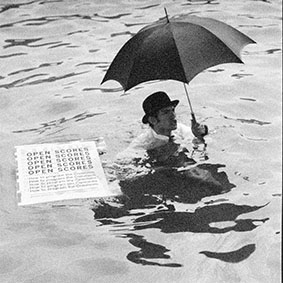Constant is an artist-run organisation founded 1997 in Brussels. It is working in collaborative situations of groups of artists and researchers working together for defined periods of time. Often these settings are collaborations with other institutions, and take part at other places. This is only partly due to the absence of permanent place, but also reflects some of the core practices of the organisation, which could be described in an interest in collaboration, translation, negotiations, explanations and the care of shared resources. Constant is thus not a space, it is an organisation.
It features different formats of working together (cyclic exhibition projects, reading groups, publishing, exploration of open source tools, research, workshop, education and all kind of inventive formats that go between and beyond).
Constant’s program is concerned with media, technology and artistic practice.
self-declaration:
„Constant is a non-profit, artist-run organisation based in Brussels since 1997 and active in the fields of art, media and technology.
Constant develops, investigates and experiments. Constant departs from feminisms, copyleft, Free/Libre + Open Source Software. Constant loves collective digital artistic practices. Constant organises transdisciplinary worksessions. Constant creates installations, publications and exchanges. Constant collaborates with artists, activists, programmers, academics, designers. Constant is active archives, poetic algorithms, body and software, books with an attitude, cqrrelations, counter cartographies, situated publishing, e-traces, extitutional networks, interstitial work, libre graphics, performative protocols, relearning, discursive infrastructures, hackable devices.“
Sources:
Laurence Rassel: Notes from Field-Workers, in: Art & Research, a Journal of Ideas, Contexts and Methods, Vol. 2, Nr. 2, Spring 2009
https://www.constantvzw.org/
Interviews
Experimenting with Institutional Formats. Interview with Laurence Rassel
Conducted by Cornelia Sollfrank, 4 March 2018
Institutional Practice. Interview with Peter Westenberg
Conducted by Felix Stalder, 4 March 2018
Forms of Ongoingness. Interview with Femke Snelting and spideralex
Conducted by Cornelia Sollfrank, 16 September 2018
Ecosystems of Writing. Interview with Michael Murtaugh
Conducted by Shusha Niederberger, 15 September 2018


